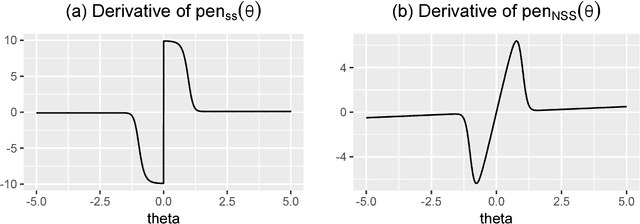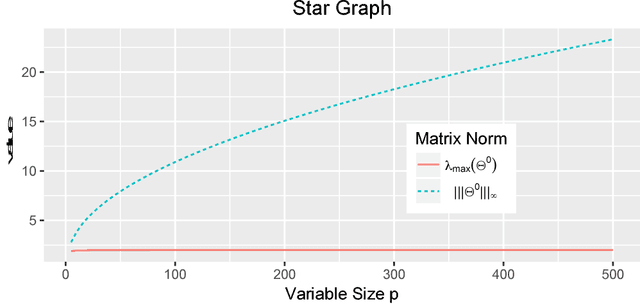Bayesian Regularization for Graphical Models with Unequal Shrinkage
Paper and Code
May 20, 2018



We consider a Bayesian framework for estimating a high-dimensional sparse precision matrix, in which adaptive shrinkage and sparsity are induced by a mixture of Laplace priors. Besides discussing our formulation from the Bayesian standpoint, we investigate the MAP (maximum a posteriori) estimator from a penalized likelihood perspective that gives rise to a new non-convex penalty approximating the $\ell_0$ penalty. Optimal error rates for estimation consistency in terms of various matrix norms along with selection consistency for sparse structure recovery are shown for the unique MAP estimator under mild conditions. For fast and efficient computation, an EM algorithm is proposed to compute the MAP estimator of the precision matrix and (approximate) posterior probabilities on the edges of the underlying sparse structure. Through extensive simulation studies and a real application to a call center data, we have demonstrated the fine performance of our method compared with existing alternatives.
 Add to Chrome
Add to Chrome Add to Firefox
Add to Firefox Add to Edge
Add to Edge